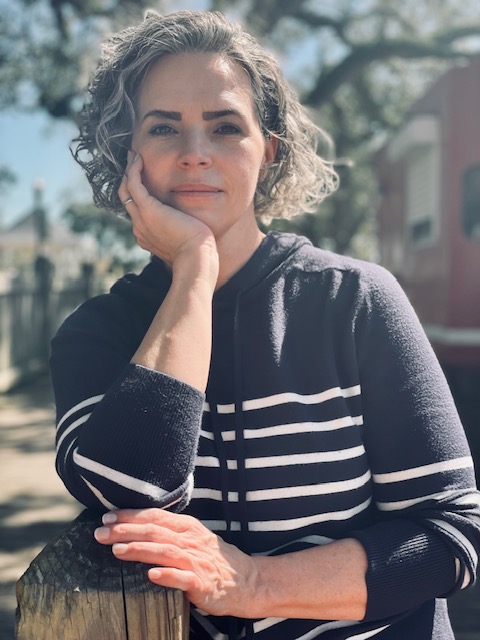We were lucky to catch up with Amanda Bradley recently and have shared our conversation below.
Amanda , first a big thank you for taking the time to share your thoughts and insights with us today. I’m sure many of our readers will benefit from your wisdom, and one of the areas where we think your insight might be most helpful is related to imposter syndrome. Imposter syndrome is holding so many people back from reaching their true and highest potential and so we’d love to hear about your journey and how you overcame imposter syndrome.
Even as a trauma therapist, I still battle with Imposter Syndrome. And not just occasionally—it’s a familiar presence, one that shows up when I’m about to speak, write, or sit across from a client who trusts me with their story. There’s this internal voice that whispers, You’re a fraud. You don’t belong here.
Logically, I know that’s not true. But Imposter Syndrome isn’t logical. It’s emotional. It’s old. It’s rooted in the belief that my worth is conditional—tied to how hard I work, how much I achieve, how many people I help. I feel like I have to earn my right to exist in this role, over and over again.
When someone tells me I’ve helped them? My first instinct is to downplay it. They did the work, I say. I was just lucky to be there at the right time. Compliments bounce off me because they don’t align with the version of myself I carry inside—one who constantly feels not enough.
Anxiety and depression complicate things. They don’t just whisper doubt—they amplify it. On my hardest days, they scream. They tell me I’m one misstep away from being exposed as incompetent. That I’ve fooled everyone. That the other shoe is always about to drop.
And yet, I keep going.
Here’s what I’ve learned: It’s okay to feel this way. Imposter Syndrome doesn’t mean I’m failing—it means I care. It means I’m aware of the responsibility I carry. It means I’m still growing.
What’s shifted for me, and what I hope reaches someone reading this, is that I’ve stopped waiting for Imposter Syndrome to disappear. I’ve started learning to coexist with it. To talk back to the voice that says I have to hustle for worthiness. To remind myself—gently, consistently—that I don’t need to earn approval to matter.
So here I am—still sometimes scared, still occasionally doubting, but showing up anyway. That’s not being an imposter. That’s being real. And that’s more than enough.

Thanks, so before we move on maybe you can share a bit more about yourself?
When I first started trying to build my private practice, it felt like I was stumbling around in the dark with nothing but a flickering flashlight. I was listening to every podcast I could find, devouring books, paying for private consultations, and throwing myself into networking events. But despite all that effort, I still felt like I was missing something — like everyone else had the manual and I was just winging it.
The moment that really hit me was when I finally gathered the courage to ask someone I respected for advice. I was vulnerable, desperate for direction, and what I got back was: “You just do it, it’s not that hard.” That crushed me. Not because they meant to hurt me — I honestly don’t think they did — but because it felt like confirmation that maybe I didn’t belong here. If it was supposed to be easy and it felt this hard for me… what did that say about me?
That was my imposter syndrome in full force.
But my sweet husband would NOT let me quit. He saw something in me that I couldn’t always see in myself, and he kept pushing me to try again. And slowly — very slowly — things started to click. Not all at once, but little by little, the pieces came together.
Today, I wake up genuinely excited to “go to work,” even though that work happens in my home office. I’m now doing EMDR therapy every single day, and it lights me up. There’s nothing like watching people walk through their healing journeys and knowing I get to be a part of that. It’s sacred work.
And because I’ve created a career that fits my life, I now have the flexibility to show up in my community in ways that matter deeply to me — whether that’s volunteering with nonprofits or giving talks on mental health and trauma healing. It’s all connected. My work is about purpose.
What’s next? I’m dreaming bigger now. I’ve got some exciting things in the works — expanding my services and possibly even mentoring other therapists who are in the same overwhelmed place I once was. I want to be the voice that says, “It’s okay to feel lost. You’re still meant for this.” I will be glad to pay it forward to them in anyway I can, no gatekeeping here.
The doubt doesn’t mean you don’t belong. Keep going. It gets better
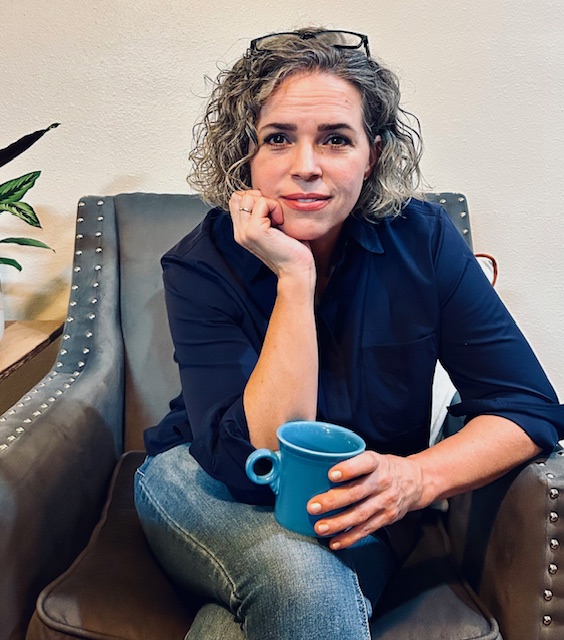
If you had to pick three qualities that are most important to develop, which three would you say matter most?
Honestly, if I had to name the top three things that made the biggest difference in my journey, it would be: being flexible and willing to pivot, asking a lot of questions, and stepping way outside my comfort zone — again and again.
First, being flexible and knowing it’s okay to pivot if something isn’t working was huge for me. When I was building my private practice, there were so many moments where I hit walls. What I thought would work didn’t, and I had to let go of being rigid with the “plan” and instead get curious. Flexibility is not weakness — it’s wisdom. It’s one of the best ways to stay in the game when your original strategy stops working.
Second, I asked questions — a lot of them — to a lot of people. And let me be real: imposter syndrome was riding shotgun the whole time. There were moments I felt embarrassed or like I was exposing how little I knew. But here’s the thing — the more I asked, the more I realized no one has it all figured out. Everyone’s winging it at some level. I didn’t wait until I had the perfect question or felt “smart enough.” I just kept asking. If you’re early in your journey, ask with courage. Ask until you understand. And don’t be afraid to ask the same thing twice, or ten times, in different ways. Learning is not a one-and-done process — it’s messy, layered, and deeply human. The act of asking is the act of learning.
And third, I had to get real comfortable with being uncomfortable. I stepped out of my comfort zone over and over — whether it was walking into rooms where I didn’t know anyone, investing in myself before I felt “ready,” or trying something new when the old way wasn’t working. Growth doesn’t happen when you’re cozy — it happens when you stretch.
So here’s what I’ll leave you with: Don’t wait for confidence to come before you act — action is what builds confidence. The imposter voice might not ever go completely silent, but it doesn’t get to drive. Keep your plans loose, your curiosity wide open, and your courage front and center. You’re not supposed to have it all figured out. You’re just supposed to keep going.
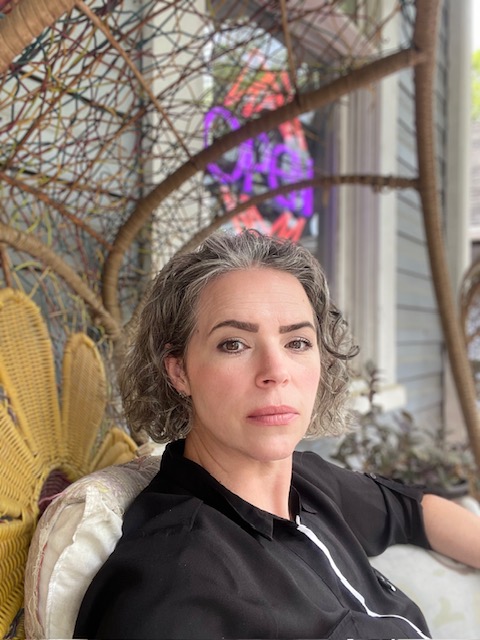
What do you do when you feel overwhelmed? Any advice or strategies?
Oh Man !!! I literally just covered this with my own therapist. I didn’t even realize I was overwhelmed, she did ! And she knows me so well. She’s like “Amanda, can we start to operate at 70%?” I was trying to do several things at once, (which is my “norm”) but clearly not working for me. The bully voice in my head has convinced me that if I don’t get these things done it is a reflection of my ability of being “good enough.” So suddenly, that overwhelm isn’t just about the to-do list — it becomes personal. So she has me dial it back down, remind myself I don’t need to know all, be all, do all, it’s ok to know some, be some, do some. I try to remember to ask myself: What’s one small step I can take right now that would make me feel just a little more in control?
Not everything. Not perfectly. Just something.
Contact Info:
- Website: https://www.amandabradleycounseling.com/
- Instagram: https://www.instagram.com/amandabradleycounseling/
- Facebook: https://www.facebook.com/profile.php?id=61559461915779
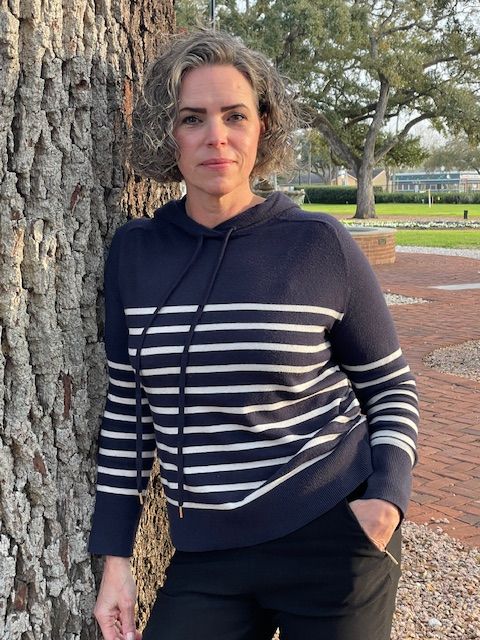
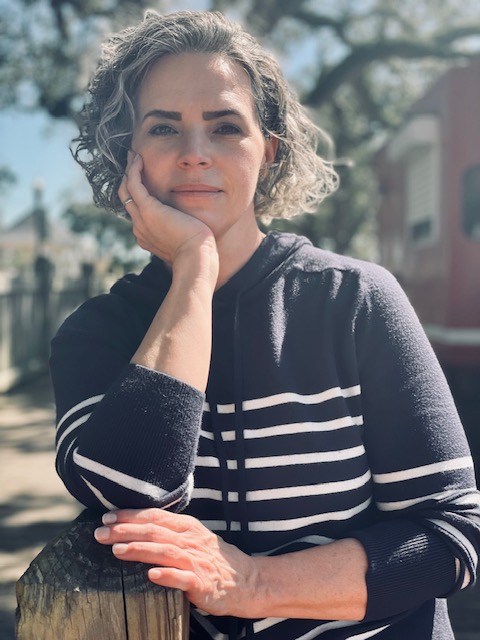
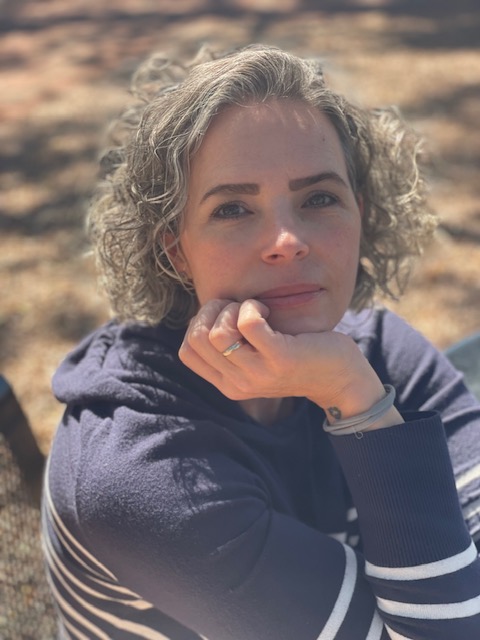
Image Credits
Amanda Bradley
so if you or someone you know deserves recognition please let us know here.

